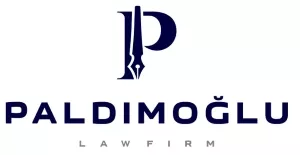- in United States
- with readers working within the Metals & Mining industries
- within Immigration, Technology and Finance and Banking topic(s)
The Law No. 7531, titled Law Amending Certain Laws and publicly known as the 9th Judicial Reform Package, was published in the Official Gazette on November 14, 2024. This law introduced amendments to several legal texts, including but not limited to the Turkish Penal Code, Code of Criminal Procedure, Turkish Civil Code, Code of Civil Procedure, Enforcement and Bankruptcy Law, Labor Law, and the Mediation Law in Legal Disputes. This article focuses on the changes concerning criminal law.
Amendments to the Code of Criminal Procedure (Law No. 5271)
The 9th Judicial Reform Package introduced changes to the provisions on conciliation within the Code of Criminal Procedure (CCP). Notably, insult offenses have been removed from the scope of conciliation. Following this amendment, crimes against sexual integrity, stalking offenses, and insult offenses can no longer be subject to conciliation. The rationale for this change, as stated in the amendment's preamble, is to adopt the general approach of modern criminal justice systems by incorporating insult offenses into the prepayment system, thereby ensuring more effective combat against such crimes.
Another underlying reason for this change could be to address instances where individuals have exploited conciliation as a means of financial gain, particularly on social media platforms. Victims would sometimes demand payments from suspects under the guise of moral compensation during conciliation processes. Upon payment, cases against suspects were dismissed. By including insult offenses in the prepayment system, the conciliation mechanism is bypassed, and suspects can avoid penalties solely by paying judicial fines to the state. This change does not apply to cases initiated before November 14, 2024.
Additionally, the response period for conciliation offers has been extended. Previously, if suspects, victims, or individuals harmed by the crime did not respond within three days of receiving a conciliation offer, it was deemed rejected. The amendment extends this period to seven days. This change also applies only to cases initiated after November 14, 2024.
Another significant amendment concerns the effects of conciliation. If conciliation is achieved, victims are barred from filing compensation claims related to the crime under investigation. However, damages that were either not identified during conciliation or that arise after the conciliation remain exceptions. This change was influenced by the Constitutional Court's decision dated July 26, 2023 (Case No. 2023/43; Decision No. 2023/141). The court had previously annulled a provision prohibiting compensation claims after conciliation, stating that it imposed an undue burden on individuals by barring claims for damages that were difficult to foresee or assess during conciliation. The amendment ensures access to justice by allowing claims for unidentified or subsequent damages.
Before the amendment, conciliators were selected from among lawyers or individuals with legal education. The new regulation changes this to law faculty graduates. However, this provision does not apply to individuals who passed the written conciliator examination before the effective date of this amendment; these individuals may still be registered as conciliators if they meet other requirements.
In the prosecution phase, if conciliation is reached and involves delayed or installment payments or ongoing obligations, courts may suspend the case. If the terms of conciliation are not fulfilled, the trial will resume from where it left off. This amendment abandons the practice of postponing announcements of verdicts in favor of suspending cases to ensure compliance with conciliation agreements. The statute of limitations will not run during the suspension period.
Amendments to the Turkish Penal Code (Law No. 5237)
Amendments related to conciliation were also made to the Turkish Penal Code (TPC). Insult offenses are now included in the prepayment system under Article 75, as previously explained. This change does not apply to cases initiated before November 14, 2024.
For insult offenses requiring complaints for prosecution, the statute of limitations for filing complaints has been limited to two years from the date of the offense. If the insult is discovered or learned of after two years, this will not extend the complaint period. This specific provision overrides the general limitation periods under Article 66 of the TPC. As a result, the eight-year statute of limitations under general provisions will be reduced to two years for such offenses.
Amendments to the Judges and Prosecutors Law (Law No. 2802)
The duties and powers of judicial inspectors have been expanded under the reform package. Their duties now include the following:
- Inspecting whether prosecutors, judicial commission members, and regional expert commission members perform their administrative tasks in compliance with laws and regulations, and investigating any criminal acts, misconduct, or violations.
- Investigating and examining the conduct of judges and prosecutors working under temporary assignments or in international institutions, ensuring compliance with their duties, and initiating disciplinary or criminal proceedings if necessary.
- Conducting audits of the Ministry of Justice's central and international branches upon ministerial request.
- Auditing enforcement offices, penal institutions, detention facilities, training centers, and other relevant bodies within the justice system, and initiating investigations when necessary.
- Proposing measures to address legislative deficiencies or issues identified during their audits.
- Providing opinions on issues within the Ministry's inspection authority and participating in relevant meetings and activities.
Judicial inspectors have been granted broader powers, including:
- Conducting sworn statements and utilizing judicial cooperation where needed during investigations.
- Exercising powers equivalent to those granted to public prosecutors under the Code of Criminal Procedure, excluding urgent investigative powers reserved for prosecutors.
- Using judicial information systems such as UYAP and audio-visual recording systems during inspections.
Entities subject to inspections are obligated to provide requested information and documents.
The content of this article is intended to provide a general guide to the subject matter. Specialist advice should be sought about your specific circumstances.
[View Source]


